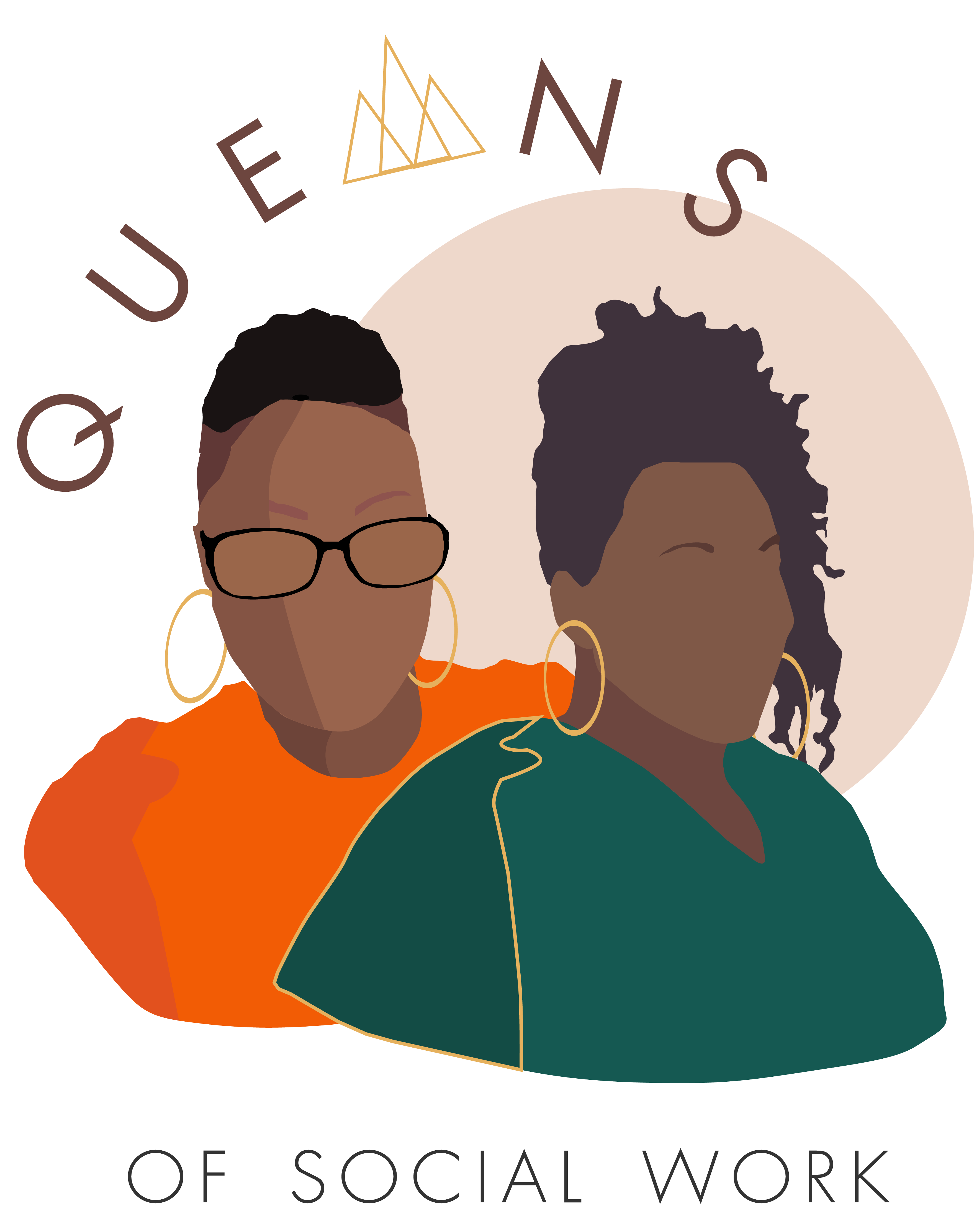You don’t enter social work for the money—but that doesn’t mean the money doesn’t matter.
For too long, the conversation around financial trauma in social work has been pushed aside, even as social workers—especially Black social workers—struggle under the weight of low salaries, unpaid emotional labor and rising costs of living. The result? Deep, lingering financial stress that impacts not just your wallet, but your nervous system, your relationships and your sense of self-worth.
It’s time to name what this is:
Financial Trauma.
And for many of us, it didn’t start with social work—but it’s been compounded by it.
What Is Financial Trauma?
Financial trauma is the emotional and psychological response to chronic money-related stress or hardship. It often stems from:
- Growing up with food or housing insecurity
- Navigating student loan debt with no safety net
- Living paycheck to paycheck as a professional
- Constantly giving more (emotionally and physically) than you’re compensated for
-
Feeling trapped in a helping profession without help for yourself
Social work culture often teaches us to “just push through.” But unspoken financial pain is a form of trauma that can lead to:
- Chronic anxiety
- Shame or guilt about spending or saving
- Imposter syndrome around money
- Overworking out of survival
-
Lack of boundaries with clients or jobs
How the Field Itself Contributes to Financial Trauma
Let’s be real: social workers are often underpaid, undervalued and overworked. Here’s how that manifests financially:
- Starting salaries in social work often range from $38K–$50K—even with a master’s degree
- Many Black social workers are first-generation professionals, meaning you’re supporting not just yourself, but family too
- Social work jobs frequently require licensure, CEUs, unpaid internships and supervision—all of which cost money
- Therapists in agency settings are often expected to carry high caseloads with little time to rest or reflect
-
Systems often reward burnout, not boundaries
This isn’t just an individual issue—it’s a structural one. But naming it helps us begin to heal.
Practical Tools to Address Financial Trauma as a Social Worker
You can’t fix a broken system on your own—but you can start protecting your peace and power. Here’s how:
1. Reframe the Shame Around Wanting More Money
- Advocate for better pay without guilt—this is labor.
- Wanting wealth or stability doesn’t make you “less dedicated.”
-
Use affirmations like: “My work is worthy of sustainable compensation.”
2. Build a Social Worker-Specific Budget That Honors Your Reality
-
Use budgeting apps like YNAB (You Need a Budget) or Goodbudget to create envelopes for:
-
-
Student loan payments
-
Licensing fees
-
Emergency fund (even if it starts with $5/month)
-
-
Budget for joy—not just survival. Even small luxuries matter.
3. Start a “Cushion Fund” for Career Flexibility
A cushion fund isn’t just an emergency fund—it’s your exit strategy from unsafe jobs or exploitative workplaces.
- Start with one month’s rent as a goal
-
Label it clearly in your bank account: “My freedom fund”
4. Unlearn the Martyr Mentality
- Saying yes to every request isn’t noble—it’s costly
- Stop overextending at work just to be seen as “a team player”
-
Normalize saying: “That’s outside my scope, but I’m happy to revisit priorities.”
5. Find or Build Financially Honest Peer Networks
- Connect with other Black social workers to compare salaries, freelance rates or supervision fees
- Platforms like Therapy for Black Girls or Inclusive Therapists often have forums or discussion groups
-
Transparency is a form of liberation
6. Diversify Your Income Without Burning Out
If your 9–5 isn’t enough, look for side income options that protect your time and energy:
- Freelance writing for mental health sites
- Offering supervision or workshops
-
Creating digital products
Mindset Shifts That Matter
In addition to external tools, internal shifts help heal financial trauma:
- Rest is productive.
- It’s okay to want ease.
- I do not have to earn my worth through suffering.
-
Helping others shouldn’t require me to harm myself.
Shop Tools That Protect Your Peace
Want to remind yourself daily that your labor is worthy, your boundaries are sacred and your rest is revolutionary?
Check out our curated collections:
-
The Boundaries Collection – Mugs, tees, canvas prints and tote bags with messages that affirm your “No” is a complete sentence
-
Interactive Journals – Like Royally You, designed to help you reflect, recharge and reclaim your time
-
Guides & Workbooks – Career tools built by and for social workers of color navigating systems that weren’t built for us
🛍️ Explore our collections here.
Let your healing journey support your bank account and your well-being.
